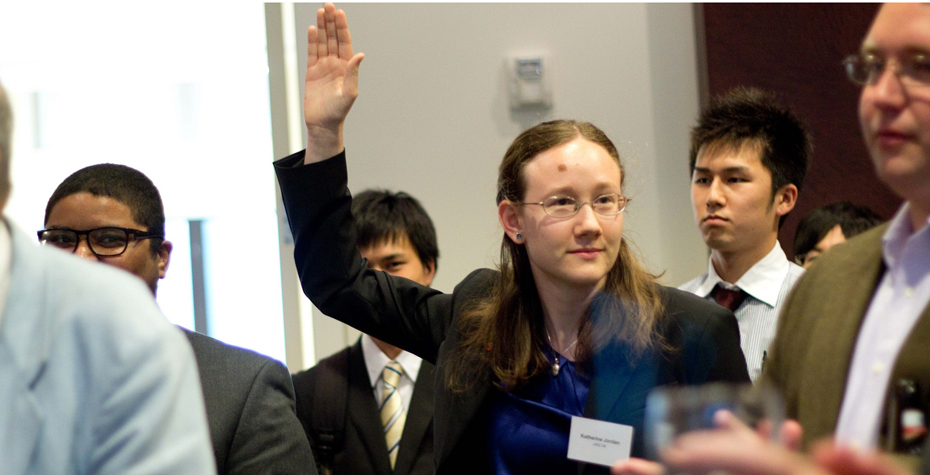Katherine Jordan '15 Serves on Executive Committee of Japanese-American Conference

Katherine Jordan ’15 will represent the United States this summer at the 65th Japan-America Student Conference in Kyoto from July 29 through August 24. The Japan-America Student Conference (JASC) is the oldest exchange program of its kind, according to its website. It began in 1934 when Japanese students invited a group of their American peers to Japan in order to build relationships and discuss important issues of the day. This conference alternated between the host countries until World War II; once the war was over, the conference resumed. Distinguished alumni include Kiichi Miyazawa, former prime minister of Japan, and former U.S. Secretary of State Henry Kissinger.
According to the JASC website:
An equal number of students from the U.S. and Japan are competitively selected each year to spend one summer month together, studying and analyzing Japan-U.S. relations while visiting four diverse regions in the host country. JASC alternates its host country every year, emphasizing the personal connections between two distinct cultures gathered together in one place. The Japan-U.S. relationship is longstanding, but each JASC is innovative and new. By exploring this relationship on multiple levels (e.g., politics, trade, culture, news media), students gain knowledge and confidence to discuss, debate, and co-create bilateral and international relations.
“Japanese is hard to learn, because it's so different from any other language I've learned, but it's absolutely fascinating to study,” said Jordan, who began her language study during her first year at Wellesley. She double majors in Japanese language and literature and French. “Everything we take for granted in Western languages—having spaces between words, basic sentence structure, verb conjugation—is turned upside down. That's actually part of why I wanted to learn Japanese, I wanted to learn something completely different from anything I've ever known.”
Jordan attended her first JASC in the United States last summer after hearing about it through Wellesley’s Japan Club. “This conference really opened my eyes to how much fun it was to sit down with my peers and debate complex issues,” she said, “whether we were talking about the presence of Zainichi Koreans in Japan and the discrimination they face or how a country develops a national identity.”
She returns to JASC this year as a member of the executive committee, a small group of students elected at the end of the previous conference. As a member of the executive committee, Jordan helped plan the conference. Her responsibilities included organizing the week-long stay in Tokyo, buying supplies, coordinating transportation, and planning the Social Minorities and Discrimination Roundtable with her Japanese counterpart.
“Roundtables are special because they take some topic that currently interests both the U.S. and Japan and then shows you each country's point of view. Each roundtable is composed of five American delegates and five Japanese delegates, so the conversation as you talk about these issues can get really intense, since each side comes from a different background and has a different perspective,” Jordan said. She is particularly looking forward to the discussion topic of her roundtable this year.
“What do we think the global and local repercussions of the Supreme Court's recent decision on gay marriage will be? How can Japan as a homogeneous country become more accepting of its minorities? Why do people discriminate? How did it start? How can we stop it without minority groups losing their group identity? There's so much for us to talk about.”
After JASC 2013, Jordan will continue to learn about Japanese culture and language firsthand through studying abroad in Tokyo.
